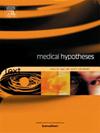使用V127朊病毒变体进行朊病毒病基因治疗:一个假设
IF 2.1
4区 医学
Q3 MEDICINE, RESEARCH & EXPERIMENTAL
引用次数: 0
摘要
朊病毒病是由朊病毒蛋白异常折叠引起的致死性神经退行性疾病。朊病毒疾病可以是散发的、遗传的或获得性的。在巴布亚新几内亚,福尔人患有一种获得性朊病毒疾病,即库鲁病,这是由于食用被朊病毒感染的脑组织而引起的。由于这种社区范围疾病的强大选择压力,许多Fore人是G127V朊病毒变体的杂合,这种变异赋予库鲁病抗性。动物模型表明,变异朊病毒杂合的小鼠对库鲁病和经典克雅氏病都有抵抗力,但仍然可以感染变异克雅氏病。然而,纯合子V127变体形式的小鼠对所有形式的朊病毒感染具有抗性,进一步的数据表明,该变体以剂量依赖的方式抑制朊病毒疾病。在中枢神经系统的基因治疗方面取得了进展。提出的假设是,在朊病毒疾病患者和潜在患者的大脑中,外源性过表达V127朊病毒变体会干扰错误折叠的朊病毒蛋白分子的繁殖,从而阻止疾病进展并可能阻止起始。因此,这种V127方法可用于朊病毒疾病的治疗和朊病毒疾病基因突变个体的预防。因此,本文提出了通过在患者脑细胞中过表达V127变体来治疗朊病毒疾病的基因疗法。这种方法的目标是延缓和/或减少疾病进展,可能治愈散发性和获得性朊病毒疾病,并作为一种预防遗传朊病毒疾病的措施。本文章由计算机程序翻译,如有差异,请以英文原文为准。
Using the V127 prion variant for prion disease gene therapy: A hypothesis
Prion diseases are fatal neurodegenerative disorders caused by abnormal folding of prion proteins. Prion diseases can be sporadic, genetic, or acquired. In Papua New Guinea, the Fore people were afflicted by an acquired prion disease, kuru, caused by the consumption of prion-infected brain tissue. Owing to the strong selective pressure of this community-wide disease, many Fore people are heterozygous for the G127V prion variant that confers kuru resistance. Animal models demonstrated that mice heterozygous for the variant prion are resistant to both kuru and classical CJD but can still be infected with variant CJD. However, mice homozygous for the V127 variant form are resistant to all forms of prion infection, and further data demonstrate that this variant suppresses prion disease in a dose-dependent manner. Advances have been made in gene therapy for the central nervous system. The hypothesis proposed is that exogenous overexpression of the V127 prion variant in the brains of prion disease patients and potential patients interferes with the propagation of misfolded prion protein molecules, thereby arresting disease progression and possibly preventing initiation. Therefore, this V127 approach could be therapeutic for prion disease and preventive for individuals with genetic prion disease mutations. Hence, this paper proposes gene therapy for prion disease via the overexpression of the V127 variant in patient brain cells. The objectives of this approach would be to delay and/or reduce disease progression, to possibly be curative for sporadic and acquired prion disease, and as a preventive measure against genetic prion disease.
求助全文
通过发布文献求助,成功后即可免费获取论文全文。
去求助
来源期刊

Medical hypotheses
医学-医学:研究与实验
CiteScore
10.60
自引率
2.10%
发文量
167
审稿时长
60 days
期刊介绍:
Medical Hypotheses is a forum for ideas in medicine and related biomedical sciences. It will publish interesting and important theoretical papers that foster the diversity and debate upon which the scientific process thrives. The Aims and Scope of Medical Hypotheses are no different now from what was proposed by the founder of the journal, the late Dr David Horrobin. In his introduction to the first issue of the Journal, he asks ''what sorts of papers will be published in Medical Hypotheses? and goes on to answer ''Medical Hypotheses will publish papers which describe theories, ideas which have a great deal of observational support and some hypotheses where experimental support is yet fragmentary''. (Horrobin DF, 1975 Ideas in Biomedical Science: Reasons for the foundation of Medical Hypotheses. Medical Hypotheses Volume 1, Issue 1, January-February 1975, Pages 1-2.). Medical Hypotheses was therefore launched, and still exists today, to give novel, radical new ideas and speculations in medicine open-minded consideration, opening the field to radical hypotheses which would be rejected by most conventional journals. Papers in Medical Hypotheses take a standard scientific form in terms of style, structure and referencing. The journal therefore constitutes a bridge between cutting-edge theory and the mainstream of medical and scientific communication, which ideas must eventually enter if they are to be critiqued and tested against observations.
 求助内容:
求助内容: 应助结果提醒方式:
应助结果提醒方式:


